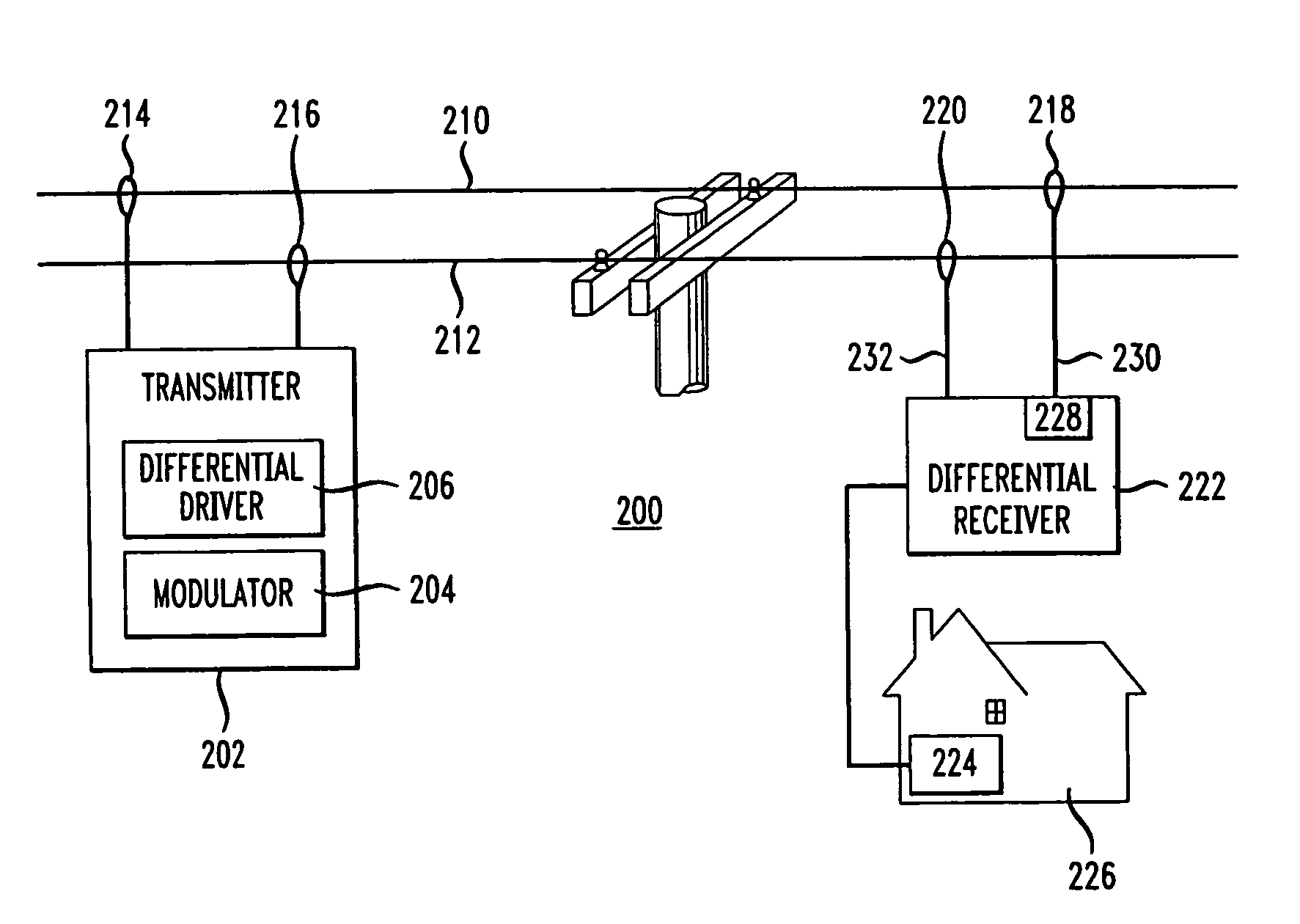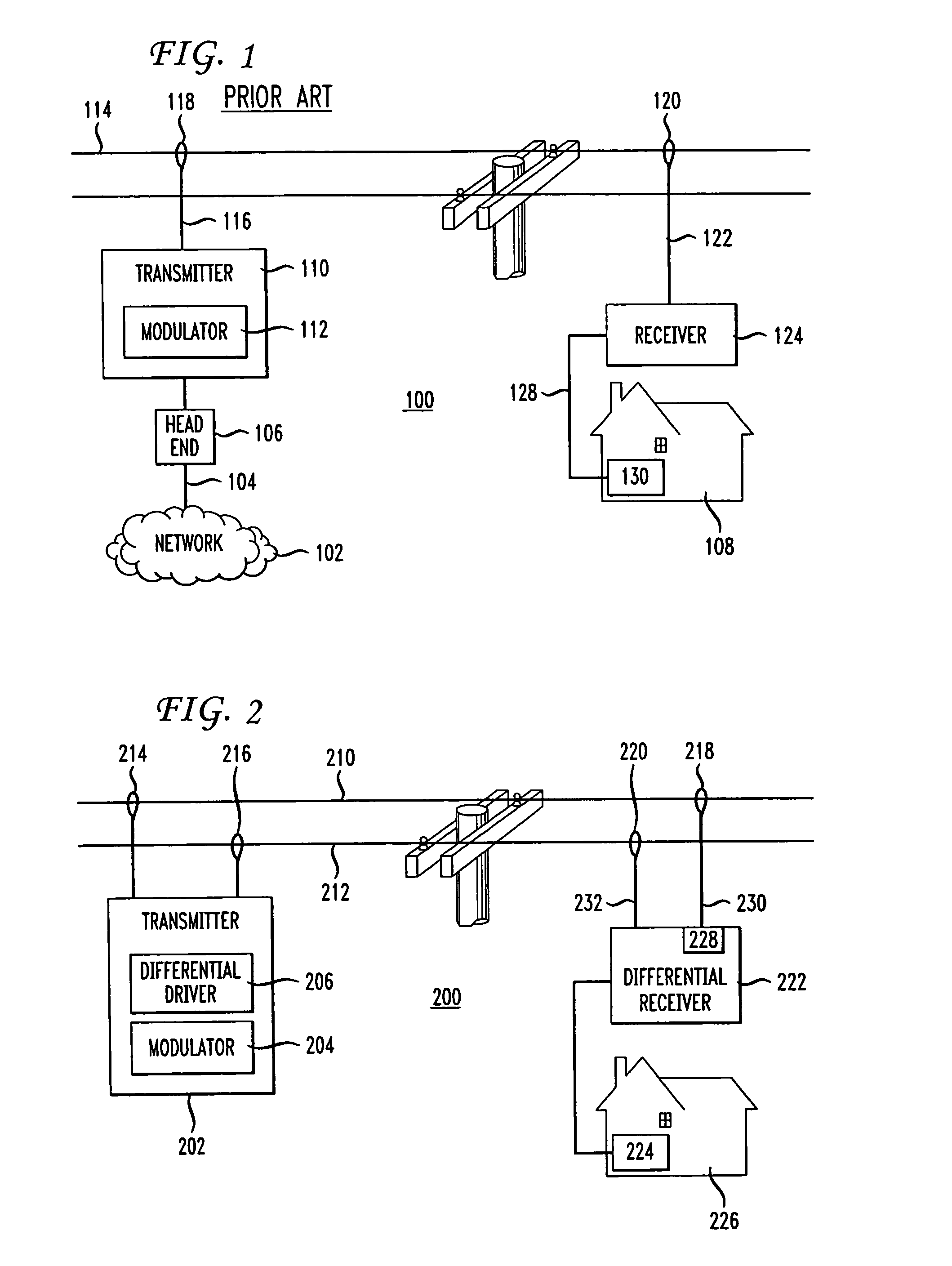Inbound interference reduction in a broadband powerline system
a broadband powerline and inbound interference technology, applied in the field of data transmission, can solve the problems of low risk of interference from external radiation sources, powerline communication systems limited to relatively low data rates, etc., and achieve the effect of reducing the effects of inbound interferen
- Summary
- Abstract
- Description
- Claims
- Application Information
AI Technical Summary
Benefits of technology
Problems solved by technology
Method used
Image
Examples
Embodiment Construction
[0014]A typical prior art powerline communication system 100 is shown in FIG. 1. A head end network node 106 is connected to a data network 102 via a fiber optic cable 104. In accordance with a typical network service, the head end 106 is configured to transmit data to end user premises (e.g., premises 108) using powerline cables as the transmission medium. The head end 106 is also configured to convert signals in the optical domain received from fiber 104 to the electrical domain using well known optical to electrical conversion techniques. The head end 106 is connected to a transmitter 110. The transmitter 110 contains a modulator 112 which modulates the data received from head end 106 onto a carrier signal using well known RF modulation techniques. As described above, typical carrier frequencies for a powerline communication system are in the range of 2–30 MHz. The modulated signal is provided to the powerline cable 114 via line 116 and coupler 118. A powerline communication syst...
PUM
 Login to View More
Login to View More Abstract
Description
Claims
Application Information
 Login to View More
Login to View More - R&D
- Intellectual Property
- Life Sciences
- Materials
- Tech Scout
- Unparalleled Data Quality
- Higher Quality Content
- 60% Fewer Hallucinations
Browse by: Latest US Patents, China's latest patents, Technical Efficacy Thesaurus, Application Domain, Technology Topic, Popular Technical Reports.
© 2025 PatSnap. All rights reserved.Legal|Privacy policy|Modern Slavery Act Transparency Statement|Sitemap|About US| Contact US: help@patsnap.com



